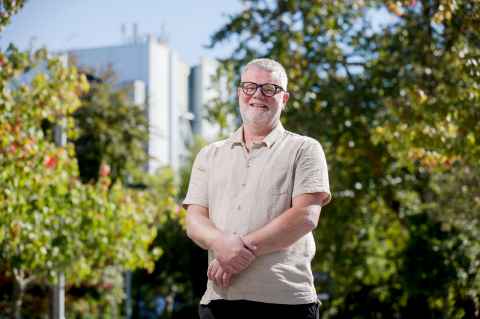David Sidebotham
David Sidebotham's career spans three decades and two disciplines. The seasoned anaesthetist and intensivist is challenging clinical research norms with a Doctor of Medical Sciences (DMedSc) degree.

"The great advantage of a DMedSc is that it allows more extensive use of previously published work than a PhD but confers similar academic benefits. Many doctors are involved in a coherent body of research that would be suitable to write up as a DMedSc degree. "
The Doctor of Medical Sciences will greatly enhance my academic
credentials and allow me to more fully integrate my clinical and academic
roles.
"I am 59 and writing up a body of work on statistical methodology I have authored or co-authored in the last five years.
“My folks emigrated with me to New Zealand from the United Kingdom when I was nine. I went to medical school in Dunedin and completed my clinical years in Christchurch. In 1990, I moved to Auckland as a house surgeon and have lived here ever since. I completed specialist training as an anaesthetist and have worked in the field of cardiac anaesthesia and ICU care since then. I spent a year in Seattle doing a cardiac anaesthesia fellowship before getting a specialist appointment at Green Lane Hospital some 25 years ago.
“The title of my DMedSc thesis is, 'Fooled by significance testing'. The thesis relates to how we interpret data from clinical randomised trials and Bayesian alternatives to the current approach of null hypothesis significance testing. It bridges the fields of academic statistics and clinical medicine.
“I am also completing a BSc (Hon) in applied mathematics and statistics through distance learning in the United Kingdom. After graduating with my DMedSc, I plan to continue with my academic contributions in my chosen area. I would like to engage more fully in academic life, perhaps through supervising other doctoral students and possibly a nominal academic appointment.”